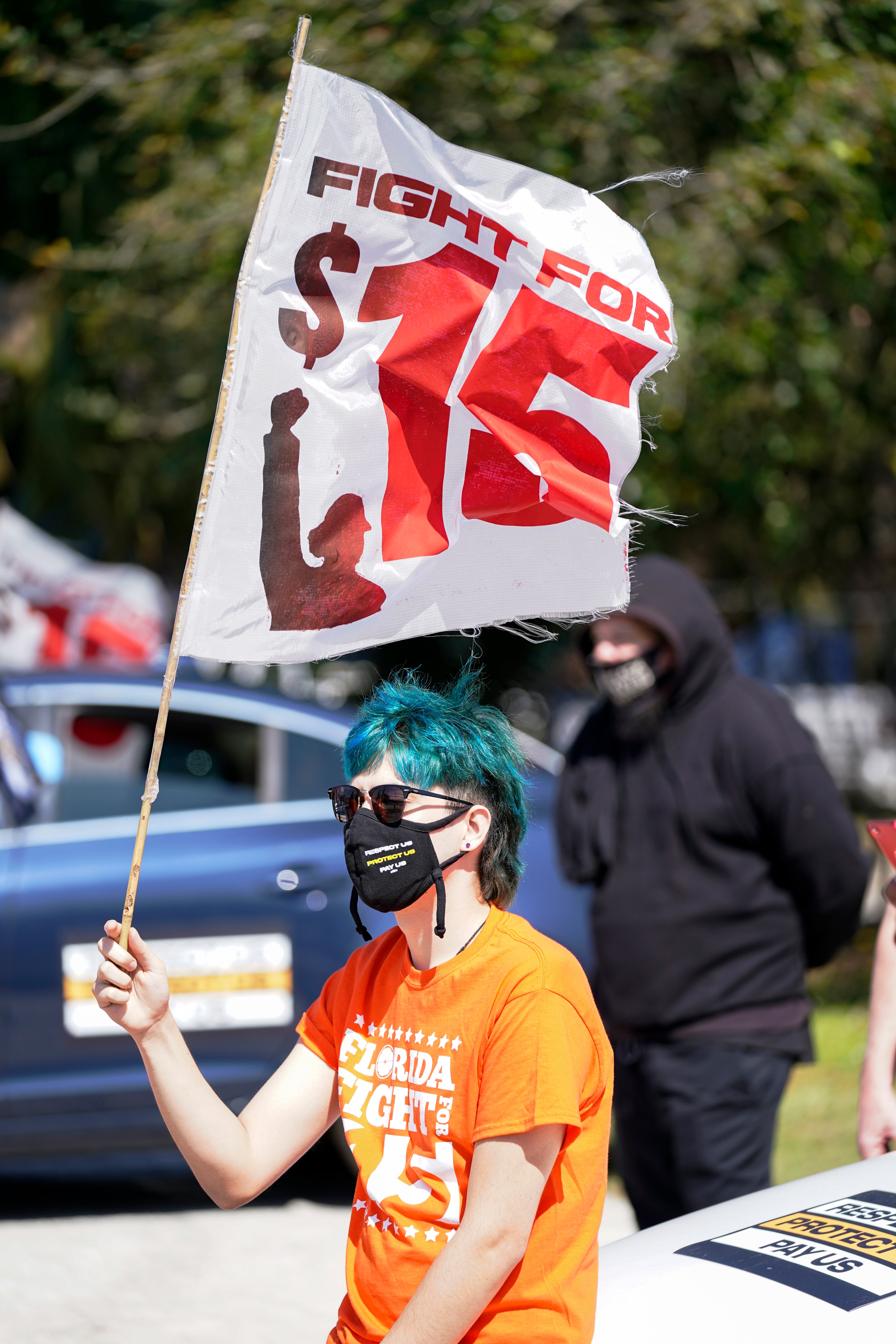Biden's $15 wage proposal: Job killer or a boon for workers?
President Joe Biden’s effort to raise the federal minimum wage to $15 an hour could provide a welcome opportunity for someone like Cristian Cardona, a 21-year-old fast food worker

President Joe Biden s effort to raise the federal minimum wage to $15 an hour could provide a welcome opportunity for someone like Cristian Cardona, a 21-year-old fast food worker. Cardona would love to earn enough to afford to move out of his parents' house in Orlando, Florida, and maybe scrape together money for college.
More than 1,000 miles away in Detroit, Nya Marshall worries that a $15 minimum wage would drive up her labor costs and perhaps force her to close her 2-year-old restaurant, already under strain from the viral pandemic.
Between Cardona's hope and Marshall's fear lies a roiling public debate, one with enormous consequences for American workers and businesses. Will the Biden administration succeed in enacting a much higher federal minimum wage — and should it? Economists have argued the merits of minimum wage hikes for years.
The administration has cast its campaign to raise the minimum as a way to lift up millions of the working poor, reduce America's vast financial inequality and help boost the economy.
“No American should work full time and live in poverty,” said Rosemary Boeglin, a White House spokeswoman. “Research has shown that raising the minimum wage reduces poverty and has positive economic benefits for workers, their families, their communities, and local businesses.''
Yet just this month, the nonpartisan Congressional Budget Office estimated that raising the minimum wage to $15 by 2025 end 1.4 million jobs as employers cut payrolls to make up for higher labor costs.
The fate of Biden’s minimum wage proposal remains hazy. Facing resistance in Congress, the president has acknowledged that he will likely have to omit the measure from the $1.9 trillion COVID-19 financial relief package he is proposing and re-introduce it later as a separate bill.
For years, there was almost no debate at all about a minimum wage. Classical economists had standard advice on imposing or raising minimum wages: Don’t. Piling higher labor costs on employers, the thinking went, would force them to cut jobs and end up hurting the very low-wage workers the minimum wage was intended to help.
But groundbreaking research in the 1990s suggested that the Econ 101 version was simplistic at best. Now there is growing confidence among economists — though far from a consensus — that lawmakers can mandate sharp increases in the minimum wage without killing large numbers of jobs.
Assessing Biden’s $15 plan, for instance, economists at Morgan Stanley have concluded that “the impact to employment, positive or negative, would be minimal, while the social benefits to lifting real wages of lower-income earners and millions out of poverty are substantial.’’
Congress hasn't raised the minimum wage for more than 11 years — the longest gap between increases.
Biden’s plan would shake things up. He proposes gradually raising the $7.25 minimum wage to $15 an hour by 2025, starting with a jump to $9.50 this year. Thereafter, it would be indexed to grow at the same rate as the U.S. median wage — the point at which half earn more and half earn less.
Expert thinking on the minimum wage began to change with the publication in 1993 of a paper by economists David Card and Alan Krueger, then both at Princeton University. When New Jersey raised its minimum wage in 1992 — and neighboring Pennsylvania did not — Card and Krueger saw a real-world experiment in the making. Would New Jersey lose low wage jobs, as classical economics had taught?
The two economists surveyed 410 fast-food restaurants in both states. Their surprising discovery: The restaurants in New Jersey, despite the burden of a higher minimum wage, actually added more jobs than those in Pennsylvania did.
Arindrajit Dube of the University of Massachusetts Amherst, a leading minimum wage researcher, cites two reasons why higher minimum wages don’t kill jobs. First, many companies can raise prices to pass along their higher labor costs.
“A burger may cost 50 cents more,” Dube said. “What that means is that middle- and higher-income consumers are, in fact, subsidizing low-wage workers. That’s a feature, not a bug.’’
Second, he said, the higher a wage, the less likely it is that employees will quit. So a higher federal minimum could reduce high turnover at, say, fast-food outlets and make them more productive.
But Biden’s plan would enter uncharted territory. Most minimum wage increases amount to 5% to 15%. A doubling of the minimum, as Biden proposes, could potentially exert a more harmful effect on jobs.
As for Biden’s minimum wage proposal, it is up against the Senate’s “budget reconciliation” rules, which will likely govern the president's rescue aid package. The reconciliation rules allow legislation to pass with a simple majority vote, not a filibuster-proof majority of 60 senators. But they are supposed to be limited to budgetary matters and likely don’t apply to a minimum wage increase.
Should the federal government remain at an impasse, states and localities, which can go beyond the federal minimum, won't necessarily wait around. Twenty-one states increased their minimum wages last year, Morgan Stanley notes.
Cities are getting into the act, too. In a study out this month, Dube and Attila Lindner of University College London found that 42 cities have set minimum wages above the federal mandate, up from just three in 2010. And 22 of them, including Seattle, Los Angeles and Washington, D.C., are already at $15 or more.
___
AP Business Writers Dee-Ann Durbin in Detroit and Christopher Rugaber in Washington contributed to this report.
Bookmark popover
Removed from bookmarks